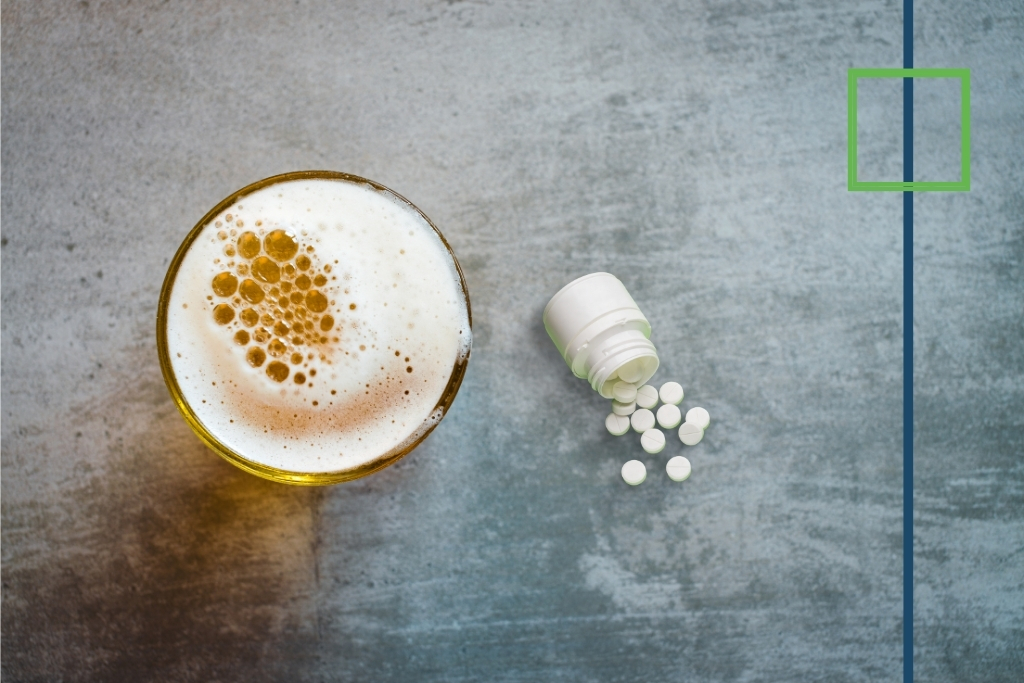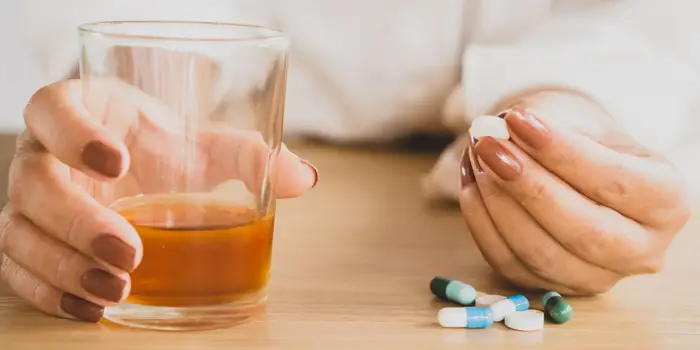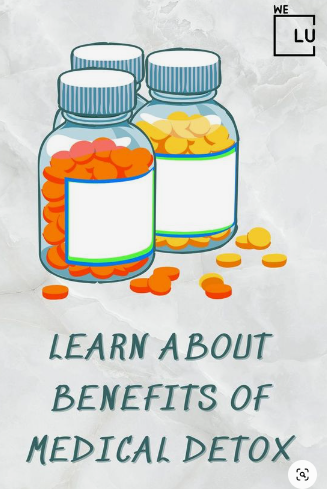The Dangers of Mixing Alcohol & Dayquil
What is Dayquil? Dayquil, a popular cold medicine, over-the-counter cold, and flu medicine, is typically used as a decongestant, cough suppressant, and fever reducer. It contains ingredients that can interact with other substances, including alcohol. It includes ingredients that can interact with other substances, including alcohol. For individuals struggling with alcohol addiction, it’s best to be cautious and avoid all medications containing dextromethorphan or acetaminophen. Mixing Dayquil and alcohol also has many dangerous side effects. Learn more by reading this article.
Dayquil Ingredients
Dextromethorphan -Dextromethorphan is one of the more common ingredients in cough medicine. It’s a cough suppressant and sedative from the same chemical family as morphine. In recommended doses, it numbs the throat and senses. However, in excess, it can act as a powerful dissociative and hallucinogenic agent.
Phenylephrine-Phenylephrine is a decongestant that is suggested to be used as a nasal spray. However, studies have shown that oral intake of this drug has reduced efficiency.
Acetaminophen – Acetaminophen acts mainly as a moderate pain reliever and fever reducer. It’s also known as paracetamol.
Taking acetaminophen, or medications that contain it, and drinking alcohol increase your risk of liver damage. DayQuil manufacturer Procter & Gamble cautions that the safest choice is to not drink at all while taking DayQuil, especially if you usually drink heavily and regularly.
Skip To:
- The Dangers of Mixing Alcohol & Dayquil
- Alcohol Can Interact with Certain Medications, but How Does it Interact with Dayquil?
- Can You Mix Dayquil and Alcohol?
- Acetaminophen- or Dextromethorphan-Associated Risks
- Alcohol and Dayquil Effects
- Is it Bad to Take Dayquil and Drink Alcohol?
- Dayquil and Alcohol Side Effects
- Liver Damage Risks
- Find Help For Dayquil and Alcohol Abuse Treatment
Learn More:
Alcohol and Acetaminophen Associated Risks
Another brand name for acetaminophen is Tylenol. It is present in more than 600 drugs, including Dayquil, making it the most widely used medicinal component in the United States. Many well-known over-the-counter medicines fall within this category. It can also be hazardous to your liver, even though it is a potent painkiller and fever reducer [1].
Your liver damage risk increases if you take acetaminophen or drugs that include it while also consuming alcohol. Procter & Gamble, the maker of DayQuil, advises against drinking at all while using it, especially if you typically consume large amounts of alcohol daily [2].
Using alcohol and acetaminophen simultaneously can result in harmful side effects like:
- Fever
- Joint pain or swelling
- Chills
- Excessive tiredness or weakness
- Unusual bleeding or bruising
- Loss of appetite
- Nausea and vomiting
- Yellowing of the skin and whites of the eyes
Alcohol and Dextromethorphan Associated Risks
Dextromethorphan is found in Dayquil. This medication largely replaced codeine as a cough suppressant when codeine was found to contribute to the opioid addiction epidemic. However, in large doses, dextromethorphan is also an intoxicating substance and is abused more often.
Alcohol is one of the most-widely abused intoxicating substances in the world. It is often abused alongside other drugs. Some individuals drink to enhance their high from drugs, while others drink to reduce the anxiety or excitability associated with stimulants or other substances [3].
A central nervous system (CNS) depressant called dextromethorphan (DXM) induces sensations of relaxation, sleepiness, and pleasant pleasure. Similar effects are also produced by alcohol, but mixing depressants is extremely risky because the combined adverse effects might increase your chances of overdosing. The following are some immediate hazards of mixing Dayquil and alcohol:
Dissociation, or feeling out of the body, can cause panic. Brain lesions can lead to memory loss, cognitive impairment, and emotional and behavioral changes.
- Dissociation, or feeling out of the body, can cause panic.
- Brain lesions can lead to memory loss, cognitive impairment, and emotional and behavioral changes.
- Respiratory depression, irregular, slowed or stopped breathing.
- Epilepsy
- Permanent psychosis

Alcohol and Phenylephrine Associated Risks
Mixing Phenylephrine HCl and alcohol is never advisable due to the chances of mild, moderate, and severe side effects. It can be challenging to tell what effect Phenylephrine HCl and alcohol will have on an individual due to their unique genetic makeup and tolerance.
The concentration of the inhibitory neurotransmitter GABA in the spinal cord and brain stem and its impact on excitatory neuronal transmitters are both impacted by alcohol’s main effects. This fundamental effect is exacerbated when alcohol and phenylephrine hydrochloride are combined, putting more stress on the body and producing unpredictable effects [4].
Dopamine levels in the brain are affected by alcohol and phenylephrine HCl, which causes both mental and physical suffering in the body. Smaller doses of phenylephrine HCl and alcohol can be just as damaging as larger doses,
Combining alcohol and phenylephrine HCl may cause a number of adverse effects.
- Dizziness
- Sluggishness
- Drowsiness
- Shortness of breath
- Itching
- Seizures
- Hives
- Palpitations
- Respiratory Depression
- Cardiac Arrest
- Coma
- Death

Get Your Life Back
Find Hope & Recovery. Get Safe Comfortable Detox, Addiction Rehab & Mental Health Dual Diagnosis High-Quality Care at the We Level Up Treatment Centers Network.
Hotline (877) 378-4154
Can You Mix Dayquil and Alcohol?
Avoid drinking alcohol when you have the flu or a cold. Alcohol causes the body to lose moisture and weakens the immune system. While taking Dayquil, some individuals with the flu or cold could still be interested in drinking. Before mixing the two medications, there are a number of crucial factors to take into account.
Dayquil and alcohol shouldn’t be combined because:
- Alcohol interacts with both acetaminophen and dextromethorphan
- Different doses of Dayquil interact negatively with alcohol
- In high quantities, alcohol, and acetaminophen directly damage the liver
- Using both substances together can increase a person’s risk of overdose
Can you take Dayquil and drink alcohol? When used with a typical dose of DayQuil, only two or three drinks are necessary to have an adverse effect. Naturally, when a person takes more DayQuil or consumes more alcohol, the severity of liver damage will increase. People who combine Vicks DayQuil and alcohol frequently experience severe dizziness and lose control of their motor abilities, which increases the risk of a fall and possible liver damage.
Get Help. Get Better. Get Your Life Back.
Searching for Accredited Drug & Alcohol Rehab Centers Near You? Or Mental Health Support?
Even if you have failed previously, relapsed, or are in a difficult crisis, we stand ready to support you. Our trusted behavioral health specialists will not give up on you. Call us when you feel ready or want someone to speak to about therapy alternatives to change your life. Even if we cannot assist you, we will lead you wherever you can get support. There is no obligation. Call our hotline today.
FREE Addiction Hotline – Call 24/7Alcohol and Dayquil Effects
Alcohol and acetaminophen, together, have been proven in studies to have the potential to harm the liver. DayQuil’s typical two-tablespoon dosage has 650 milligrams of acetaminophen in it. A normal, healthy adult should not take more than 4,000 mg of acetaminophen daily, but some people have been known to experience liver damage at lower amounts. Recent research on the effects of acetaminophen with alcohol suggests a more than doubled risk of liver damage and kidney disease.
Can I take Dayquil and drink alcohol? Combining alcohol with phenylephrine may cause confusion, lightheadedness, dizziness, respiratory problems, and loss of balance in varying degrees. There are even cases wherein individuals who were rendered unconscious by the combination of phenylephrine and alcohol remained unresponsive to efforts to wake them up.
Alcohol Can Interact with Certain Medications, But How Does it Interact with Dayquil?
Can you mix alcohol and Dayquil? Dayquil Cold & Flu, also known simply as Dayquil, cures cold and flu symptoms. The over-the-counter drug Dayquil Cold & Flu comprises acetaminophen, dextromethorphan, and phenylephrine. Dextromethorphan is a cough suppressant, phenylephrine is a decongestant, and acetaminophen relieves pain and lowers the temperature. However, the active components in various Dayquil formulations vary, so always read the product label.
Is It Bad to Take Dayquil and Drink Alcohol?
You should never take or mix Dayquil and alcohol because alcohol can interact with the acetaminophen in Dayquil and cause liver damage. The liver is responsible for breaking down acetaminophen and alcohol, and studies have linked these substances to liver damage. Can I mix Dayquil and alcohol? Dextromethorphan, another component of Dayquil, can interact with alcohol to alter the likelihood and intensity of side effects and how the drug functions. All of these components are in the formulation of DayQuil. With such risks, it is simply too dangerous to mix the two substances, regardless of how tolerant a person might be to Dayquil and alcohol interaction in the body.

Dayquil and Alcohol Side Effects
Dayquil’s negative effects at recommended dosages can include nausea, upset stomach, anxiety, headaches, and liver damage (because of the acetaminophen). Alcohol can exacerbate all of the typical Dayquil side effects and raise the danger of an overdose.
Other common side effects of combining alcohol and Dayquil may include
- Difficulty concentrating
- Drowsiness
- Dizziness
- Fever
- Unusual bleeding or bruising
- Nausea or vomiting
- Serious liver damage (because of acetaminophen used with alcohol)
- Increased risk of alcohol use disorder
Signs of overdose involving alcohol and Dayquil may include:
- Hallucinations
- Confusion
- Excessive drowsiness
- DelusionsParanoia
- Dizziness
- Nausea
- Vomiting
- Abdominal pain
Liver Damage Risks
The possibility of taking too much acetaminophen or combining it with alcohol arises from the way the body breaks down acetaminophen. Acetaminophen is broken down into a number of chemicals by the liver during processing. Our urine flushes out the majority of them. NAPQI, one such chemical, is particularly harmful to the liver.
Symptoms of Liver Damage
- Jaundice (yellowing of the skin or whites of the eyes)
- Abdominal pain in the upper right side
- Abdominal swelling
- Loss of appetite
- Nausea or vomiting
- Tiredness
- Sweating
How Liver Damage Happens
Fortunately for us, the body has a mechanism to counteract the adverse effects of NAPQI when acetaminophen is given in appropriate doses. The liver uses a potent antioxidant called glutathione to neutralize NAPQI and stop it from harming liver cells.
However, heavy drinkers (3 or more drinks per day) have lower glutathione levels, allowing NAPQI to accumulate to harmful levels that can harm liver cells. As a result, chronic drinkers are more likely to overdose on acetaminophen accidentally. Serious liver damage or even liver failure may ensue from this.
World-class, Accredited, 5-Star Reviewed, Effective Addiction & Mental Health Programs. Complete Behavioral Health Inpatient Rehab, Detox plus Co-occuring Disorders Therapy.
CALL (877) 378-4154End the Addiction Pain. End the Emotional Rollercoaster. Get Your Life Back. Start Drug, Alcohol & Dual Diagnosis Mental Health Treatment Now. Get Free No-obligation Guidance by Substance Abuse Specialists Who Understand Addiction & Mental Health Recovery & Know How to Help.
Find Help For Dayquil and Alcohol Abuse Treatment
Mixing OTC drugs with alcohol can lead to addiction and dangerous side effects, including a greater risk of overdose. People with a history of problem drinking and alcohol dependence will need to inform their doctor about these problems. In addition, these individuals must get help from a qualified addiction rehabilitation center.
Polysubstance abuse is the consumption of more than one substance simultaneously. While some drug users have a preferred drug, others have several drugs they like to take. Polysubstance abuse is common, and these drug users are clinically classified as having multiple comorbid substance disorders.
Because withdrawal from multiple substances is more complicated than withdrawal from one substance, inpatient medical detox is generally recommended. The goal of treatment is to restore some or all normal liver functioning by addressing the underlying issue of alcohol and OTC drug abuse.
Medically Assisted Detox
Usually, the first step in inpatient alcohol treatment is medically assisted detox. Doctors and addiction specialists monitor clients’ vital signs while alcohol exit the system. Depending on the type of substance a person is detoxing from, withdrawal symptoms may differ.
Cravings are very common during detox and can be challenging to overcome. This often leads to relapse. Constant medical care provided during inpatient treatment helps prevent relapse. Clinicians can provide necessary medicine and medical expertise to lessen cravings and withdrawals.
Psychotherapy
Several different modalities of psychotherapy have been used in the treatment of depression, including:
- Cognitive Behavioral Therapy (CBT) – is an effective treatment that involves changing both the patterns of negative thoughts and the behavioral routines which are affecting the daily life of the depressed person for various forms of depression.
- Dialectical Behavior Therapy (DBT) – is a comprehensive mental health and substance abuse treatment program whose ultimate goal is to aid patients in their efforts to build a life worth living. The main goal of DBT is to help a person develop what is referred to as a “clear mind.”
- Person-Centered Therapy – is a strategy that allows and encourages clients to understand and resolve their concerns in a safe, supportive environment.

Dual Diagnosis Treatment
Substance abuse and mental health disorders often co-occur. Traumatic experiences can often result in mental health disorders and substance abuse. Dual diagnosis programs treat both of these issues together. The best approach for the treatment of dual diagnosis is an integrated system. This strategy treats both the substance abuse problem and the mental disorder simultaneously. Regardless of which diagnosis (mental health or substance abuse problem) came first, long-term recovery will depend largely on the treatment for both diseases done by the same team or provider.
At We Level Up NJ, we prioritize removing the stigma and temptations for relapse and applying an air of recovery into every component of the treatment timeline. We find that clients living in a supportive community, especially during their early recovery process, can genuinely focus on what matters most: their recovery.
Experience Transformative Recovery at the We Level Up Treatment Center.
See our authentic success stories. Get inspired. Get the help you deserve.



Start a New Life
Begin with a free call to an addiction & behavioral health treatment advisor. Learn more about our dual-diagnosis programs. The We Level Up treatment center network delivers various recovery programs at each treatment facility. Call to learn more.
- Personalized Care
- Caring Accountable Staff
- Comfortable Amenities
- Licensed & Accredited
- Renowned w/ 5-Star Reviews
We’ll Call You
Sources:
[1] Acetaminophen | FDA
[2] DailyMed – DAYQUIL SEVERE COLD AND FLU- acetaminophen, dextromethorphan hydrobromide, guaifenesin, and phenylephrine hydrochloride tablet (nih.gov)
[3] Dextromethorphan in Cough Syrup: The Poor Man’s Psychosis – PMC (nih.gov)
[4] Phenylephrine: MedlinePlus Drug Information
[5] Risks Of Mixing Prescription Drugs With Alcohol & Treatments (welevelup.com)